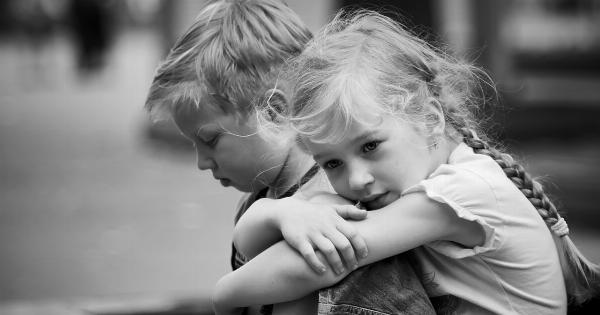Children are the most vulnerable individuals when it comes to experiencing traumatic events.
From domestic abuse to natural disasters, children’s mental and emotional health can be severely impacted by these events, causing them to withdraw and become anxious. When it comes to dealing with the aftermath of a traumatic event, children often need a friend who can help them navigate their emotions and offer comfort. That’s where Sasha, a canine companion trained to provide emotional support, steps in.
What is Sasha and what does she do?
Sasha is a specially trained dog that provides emotional support to traumatized children. She is a golden retriever born and bred for therapeutic purposes.
SashatheDog — as she is known on her social media accounts — is a certified therapy dog that works in various settings, including hospitals, schools, and clinics, to provide comfort and aid to children in need. Sasha’s job is to help kids feel safe and loved when dealing with traumatic events.
How does Sasha help traumatized children?
Sasha provides emotional support to children in a variety of ways. When kids pet Sasha, the act of petting and cuddling is enough to elevate their mood and reduce their stress levels.
Additionally, Sasha is trained to respond to specific instances and actions to help children in need. This could include waking up a child who is experiencing nightmares, visiting a child who is in the hospital or bringing comfort to a child who has lost a loved one.
Sasha’s presence is often enough to soothe a child’s anxiety during traumatic events, as well as provide them with a sense of security and love.
Sasha’s Training
Sasha was trained by her experienced owner, Heather, who has extensive knowledge on how to train therapy animals. Heather has been training dogs to become therapy animals for over 20 years.
Heather’s approach to training involves using positive reinforcement to train dogs to learn various behaviors and actions that will provide therapeutic support to children. The rigorous training Sasha received enables her to accompany children in any setting and respond according to their needs. She is also trained to identify and respond appropriately to any situation that may cause distress to children in her care.
Why Sasha is so Effective?
Sasha’s effectiveness in providing comfort and reassurance to traumatized children goes beyond just being a dog.
It is the unique relationship between a child and a dog that enables the former to receive the necessary emotional support that they require. A dog’s natural ability to love and offer unconditional loyalty makes them perfect companions for children who need therapy.
Additionally, it is often easier for children to accept emotional support from animals because they do not judge, argue or require an explanation. This makes it easier for children to share their feelings and not feel ashamed or embarrassed. For a child, having a dog like Sasha provides a constant source of companionship and love that is not found in other types of therapy.
Benefits of Sasha’s Therapy
Sasha’s therapy has numerous benefits for traumatized children who struggle to cope with traumatic events, including:.
- Reduces Stress and Anxiety: Sasha’s presence can help calm children and reduce their stress levels. This can aid in bringing down the child’s level of anxiety and help them feel relaxed.
- Improved Mood: Sasha’s therapy can also help improve a child’s mood. Children who are dealing with trauma can often feel sad and depressed. Sasha’s presence can help bring a smile to their face, and comfort and console them.
- Enhanced Self-Esteem: Traumatic events often lead to a decline in a child’s self-esteem. Sasha’s companionship and love can help boost a child’s confidence and increase their self-esteem.
- Reduced Hospital Stays: For children hospitalized after an accident or suffering from an illness, Sasha’s presence can aid in their recovery and shorten the length of these stays.
- Boosts Communication Skill: Children who endure traumatic events often have difficulty communicating. Sasha’s companionship, along with that of a professional therapy provider, can help children develop their communication skills.
Conclusion
The human-dog bond is a unique one that provides emotional support and comfort to people of all ages. However, no one benefits as much from this bond as traumatized children.
Sasha, the specially trained canine companion, continues to offer her therapeutic services, bringing comfort and reassurance to children who need it most. Sasha’s companionship can aid in reducing stress levels, improve moods, enhance self-esteem, reduce hospital stays, and boost communication skills.
It is a relationship that has helped children learn how to cope better with traumatic events and move forward with their lives.





























